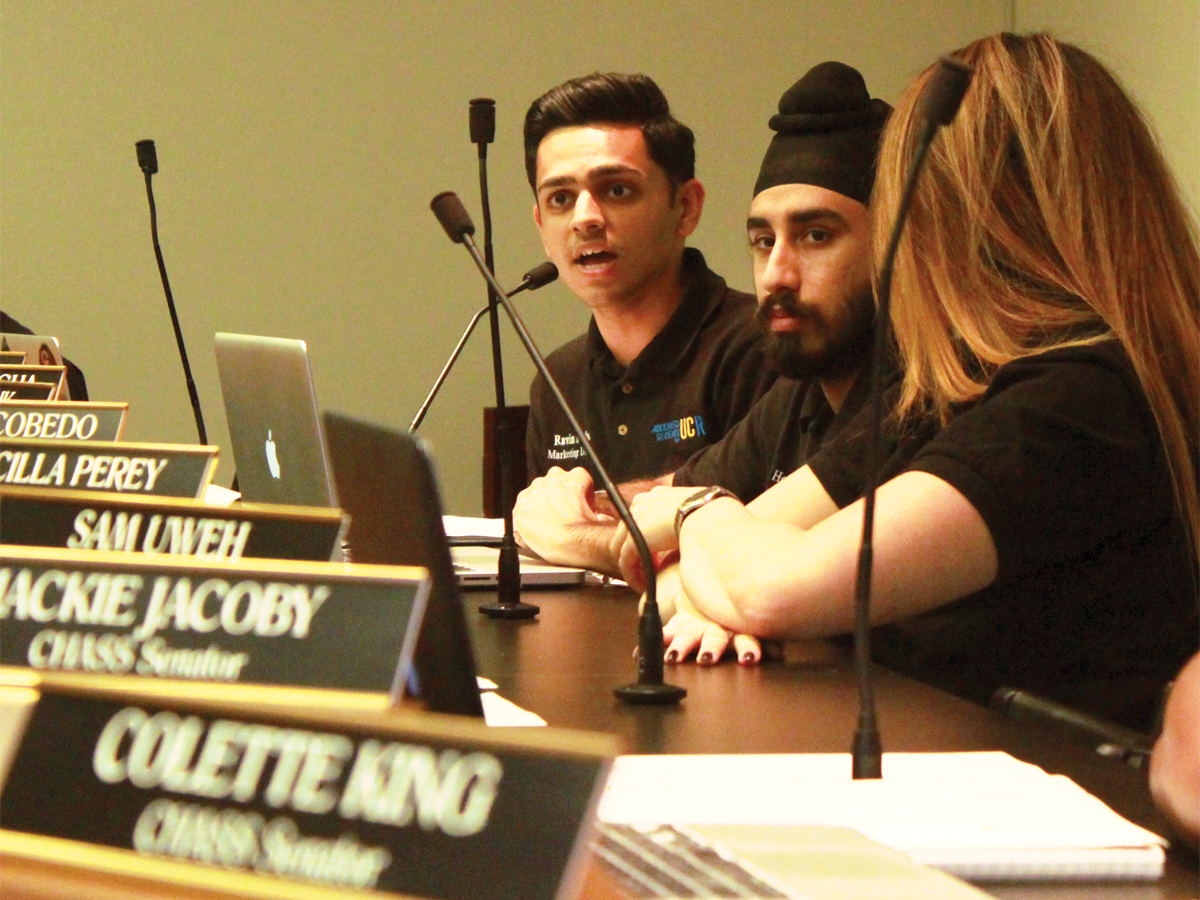
ASUCR passed a resolution intended to improve the relationship between law enforcement and the campus community at their most recent meeting in the hopes of making officer-citizen relations safer.
Authored by Senator Akeem Brown, the Community Law Enforcement Education Act allocates $1,000 to create a campaign that educates the campus community about the cultural and ethnic diversity training that police officers in California receive. The campaign will also educate the community on “best practices” to engage in when interacting with a police officer to make the encounter safer for all parties.
In addition, Brown hopes to use this resolution to gain support in the California state legislature to require officer training every three years instead of the current requirement of every five years, as mandated in penal code 13519.4.
The resolution stems from recent deaths associated with police violence — such as the shooting of African-American teenager Michael Brown — and supersedes a past resolution in December which urged UCPD to require ethnic and gender studies courses, since senators discovered that California police officers are already required to take such courses.
Now, Brown has turned his attention on educating the community. “If a cop tells you to stop, stop,” he said. “Don’t put your hands in your pocket … small things save lives.” According to Brown, many officers only resort to violence because “they are simply afraid, they’re scared for their life … (so) they fire,” citing officer statements from recent instances of police violence, such as the Michael Brown case.
In addition, Brown believes that by increasing the frequency of required police training, officers will be better informed about the cultural trends that take place in communities and be better able to serve them. Brown plans on working with California Assemblyman Jose Medina to amending the penal code, but as of now, direct plans have not been made.
The marketing committee will work on implementing the campaign; however, it has not provided a concrete timeline for when the campaign will begin.
The resolution was met with support from other senators, but some, including Senator Sam Uweh, expressed concerns that the act only aimed to help members of the African-American community. Brown, however, assured them that “the whole intent of this is the preservation of human life,” and is not only for the benefit of one group. “I like to see ‘human lives matter,’” he said.
Senators hope that the campaign will help put a stop to racial profiling, with several citing the very broad suspect descriptions that are often sent to the campus in crime alert emails. “When you’re walking down the street and match the description, you would always be right away … on guard,” said Outreach Director Jessica Urquidez.
Fourth-year Shane Brandon is uncertain that the resolution will prove beneficial. “I think that community education programs could be effective if they are done in a certain way,” he said, but “programs like these oftentimes are used to train people to accept invasive policing rather than actually protect citizens.”
The resolution was passed with a vote of 12-0-1.
Full video coverage of ASUCR senate meetings is available online at youtube.com/UCRChannelH.








